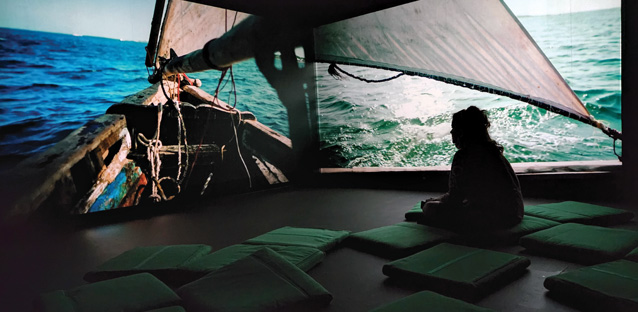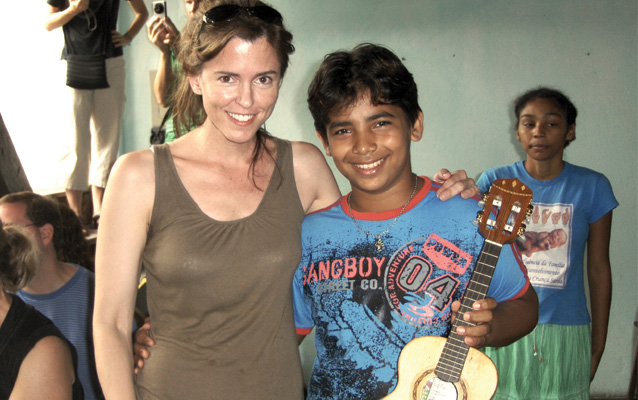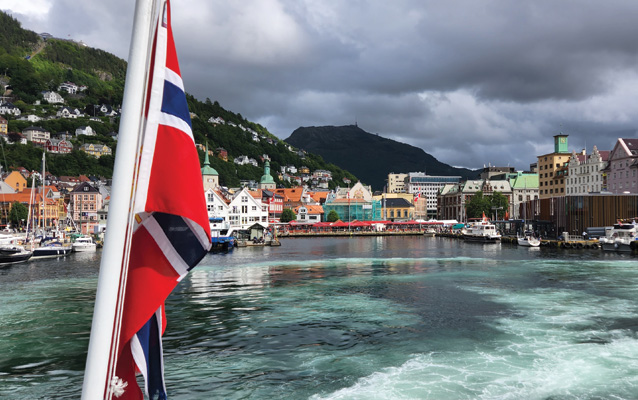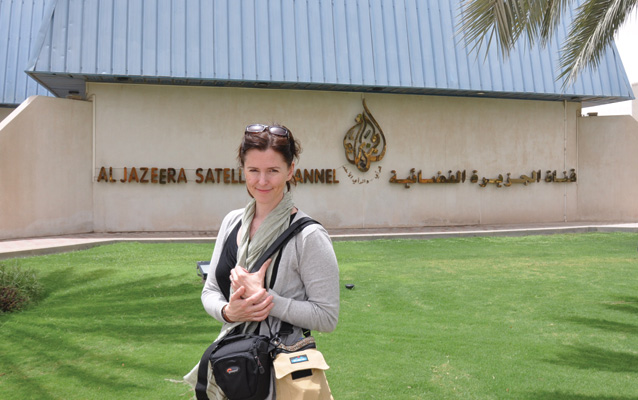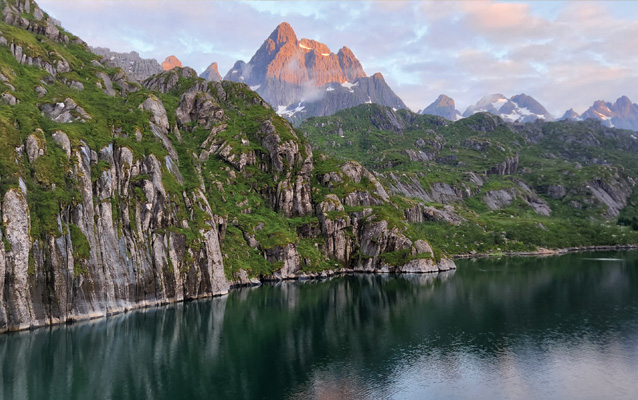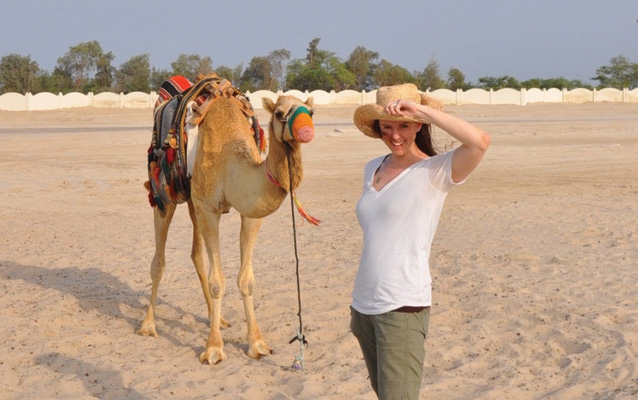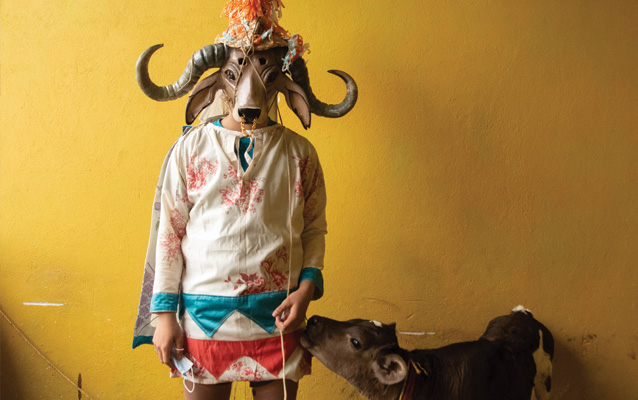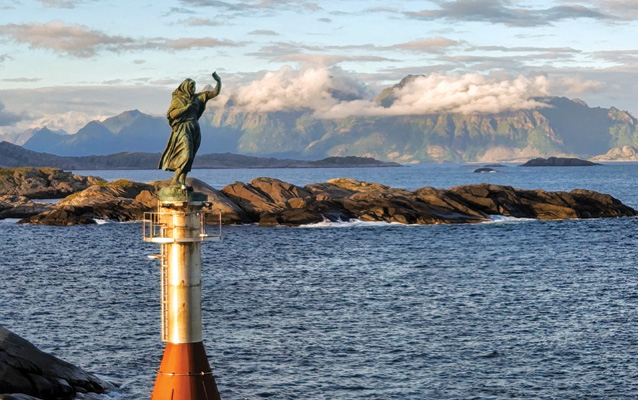Professor Karen Barton’s unprecedented nine Fulbright awards have taken her across five continents — North and South America, Africa, Asia and Europe — allowing her to bring the world to her students at UNC.
The name Karen Barton and Fulbright Scholar have become almost synonymous at the University of Northern Colorado. A professor in College of Humanities and Social Sciences for almost two decades, Barton has been awarded nine of the highly competitive and prestigious awards over her academic career. It’s an impressive accomplishment for any scholar, particularly a first-generation college student who also worked hard outside of the classroom, waiting tables while earning both her undergraduate and graduate degrees.
As someone who once thought she was on a clear path to law school, the decision to follow a different direction into a graduate program in geography prompted some questions about what that meant for her future job prospects. It’s something she laughs about now, as that decision became the prelude to a journey around the world that has enriched and emboldened her as a scholar, strengthened her teaching skills and offered countless students first-hand accounts into faraway places facing what sustainability scholars refer to as ‘wicked problems’ — land degradation and desertification, coastal erosion, community resilience and environmental stewardship.
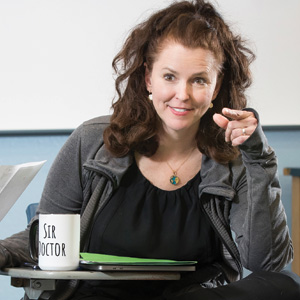
It’s all about the people connections. For Barton, the focus wasn’t on the travel, instead, it was bringing the relationships she formed into the classroom and helping her students understand how people communicated in the past to push boundaries and create something that’s fluid and works for other people and the environment. Photo by Woody Myers
Barton’s interest in environmental studies is what steered her away from law and toward a master’s and Ph.D. in geography, and eventually into a faculty position teaching Geography, Geographic Information Systems (GIS) and Sustainability at UNC.
“It’s not just the theory that we learned as geographers about the relationships between humans and the environment,” Barton says. “It’s about the skill set that comes along with that: field work, using GIS and remote sensing techniques. It’s this wonderful combination of theoretical principles, skill sets and operating in a real-world, physical environment.
“It feels so exciting to design projects that are important and integral for society. I just fell in love with the discipline.”
In light of what drew her to the field of geography, her pursuit of the opportunities a program like Fulbright can provide may seem obvious — a program that seeks to build connections between countries across the world, to exchange ideas and to find solutions to important international problems. But that’s not the case for Barton. In fact, the program wasn’t even on her radar until a colleague shared his own Fulbright experience which sparked her interest. In 2007, she was awarded her first Fulbright: a six-week trip to Brazil to study environmental sustainability issues in the Pantanal, the world’s largest tropical wetland.
“I cannot emphasize how much that changed my experience as a faculty member,” Barton says. “It gave me confidence, not only because I received the award, but knowing there were these kinds of opportunities for people like me who were first-generation scholars, to fund my research. When I came back [from Brazil], I was really energized to help support my students and do good research. After that experience, I just kept applying.”
Since 2007, Barton’s Fulbright awards have taken her across five continents — North and South America, Africa, Asia and Europe — where she has been able to study a host of environmental challenges and successes all within the context of different countries and cultures.
The Fulbright program gave her the funding necessary to conduct research projects in environments she wouldn’t have otherwise been able to do, and it has allowed her to create partnerships and a robust network of other Fulbright scholars who share ideas and amplify other researchers. It’s a network she’s active in, as a past co-president and current board member of Fulbright Colorado, an advocacy organization that supports Fulbright scholars in the state.
Aside from the benefits to herself, the program has also helped inform and enhance Barton’s curriculum, providing invaluable opportunities to offer her students specialized courses and projects that draw directly from her own hands-on experiences. As a teacher, Barton is certain the wisdom she’s gained through her Fulbright awards have made her classrooms much more engaging. Maybe even more importantly, it enabled her to share critical perspectives with her students she never would have gained from reading a book.
“When you’re instructing a subject like geography, having those first-hand experiences certainly makes the learning environment more fun and energizing,” Barton says. “But the experience of being in these places has also helped humanize some of these problems we talk about.
“When I first started teaching classes in environmental sustainability, I suspect that I focused a lot on the problem,” explains Barton. “For example, I’d teach how deforestation is impacting communities in the Amazon or how overfishing by outside pirate and industrial fishing vessels is impacting a local community. But when I started to travel to other places, I was able to bring into the classroom the ways in which communities were responding, so they weren’t just seen as passive victims in the face of these large global structures. They were communities who had their own systems in place to deal with these issues and fight them. I’ve tried to humanize the story in ways that I didn’t when I first started teaching, because I couldn’t.”
Barton benefited tremendously from her experiences abroad that she searches for ways to offer her students similar transformative opportunities. In 2019, she expanded the scope of a Fulbright to Nepal, inviting an interdisciplinary group of 10 UNC graduate and undergraduate students to assist with natural hazards mapping for a community resiliency project. She has also organized and led undergraduate field expedition courses to Iceland, Peru, Nicaragua and Guyana. Barton is an ardent supporter of the Fulbright U.S. Student Program, regularly encouraging students to apply and serving as a mentor through the application process.
While Barton knows not all of her students can travel abroad, she’s a champion for those who do. She thinks the experience gives them ways to field-test their own theories about other people and cultures and a chance to develop a sense of confidence they don’t always find in a classroom.
Gabby Roldan ’18, was a junior majoring in Environmental Sustainability Studies when she accompanied Barton on an ecotourism expedition to Guyana. There to learn about how the community balanced tourism with land protection, Roldan describes that experience, which was her first trip outside of the United States, as magical.
“I don’t even know how to exactly put it into words. There’s just so much out there to learn and you wouldn’t know unless you go,” Roldan said.
That first trip sparked a new confidence in Roldan and when the opportunity came to accompany Barton on another adventure, she jumped at the chance. Rather than walking across the stage during her December graduation, Roldan was in Asia, joining Barton on her fifth Fulbright journey to Nepal. Roldan’s role was working with other students at the Institute for Crisis Management in Kathmandu, interviewing local community members about how the 2015 Gorkha earthquake, which killed over 9,000 people, had impacted them.
“This experience was extremely rewarding. I felt like I had the opportunity to immerse myself in the culture and really be a part of it,” Roldan says. Roldan credits Barton for teaching her that it’s possible to have adventures while pursuing the work you love. Currently a community inclusion planning specialist with the Division of Homeland Security and Emergency Management for the State of Colorado, a complement to her experience in Nepal, Roldan is anxiously awaiting news on what she hopes is her next big career move. She finds out this spring whether her application to the Peace Corps, where she is pursuing the role as community economic development facilitator in Fiji, was successful.
COVID-related travel restrictions prevented Maggie McBride ‘20 from participating in fieldwork during her undergraduate education at UNC. But she nonetheless learned a great deal from Barton, who was her teacher and advisor, and who remains her mentor. McBride is currently a master’s student at George Washington University in Washington, D.C. studying environmental resource policy. She graduated from UNC with a major in Political Science and a double minor in Environmental Studies and Geography.
“(Professor Barton’s) the most humble person I think I’ve ever met when it comes to their own research,” McBride said, referring to the fact that Barton has a way of sharing her experiences and knowledge in a manner that is anything but condescending.
“She would talk about some of her trips in class, but the focus wasn’t on the travel, it was on the relationships she formed and how to communicate with people,” McBride says. “My Political Science and Environmental Studies programs were both excellent. I had great professors and fellow students, but those programs were more focused on how to get around people rather than how to work with people. That’s something Dr. Barton was constantly talking about. How have people communicated in the past to push boundaries and to create something that’s fluid and works for other people, and also works for the environment? And how can we continue to do that in the future as technology and politics are changing?
“It was always more about the people connections,” McBride continued. “She’s able to really form these beautiful connections across the world. And she’s able to give those to her students, too, because she keeps bringing students into everything that she’s doing. She gave me some of the best lessons that I’ve been able to take forward in my career.”
Barton closed the latest chapter of her Fulbright journey last summer, a trip to Norway where she learned more about the country’s extensive renewable energy sources and the impact the infrastructure for those resources is having on land owned by an indigenous community. Later this spring Barton heads to Bangladesh on a Fulbright Specialist award where she will collaborate with former Ambassador Tariq Karim, members from the U.S. Embassy and others to help reduce plastics pollution in the Bay of Bengal, specifically focusing on mitigation and education efforts targeting single-use plastics.
In addition to her Fulbright travels, Barton is currently writing a book about her experiences, something she once said she felt she was being called to do given her good fortune with the program. While the book is currently structured to be nine chapters, each one providing an account of each of her awards, she’s got her eye on a tenth, and final chapter. Barton recently submitted an application for a Fulbright Scholar Rwanda where she’s interested in the indigenous concepts in place that promote environmental conservation. Not surprisingly, she’s already made it past the first round.
In her hallmark humble fashion when talking about her Fulbright awards, what Barton hopes for most isn’t recognition, but inspiration.
“I want people to read a story like this and understand that their children and their colleagues can participate in these opportunities,” Barton says. “There’s a Fulbright for everyone, I think.” UNC
By Deanna Herbert

